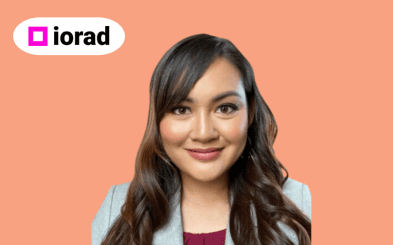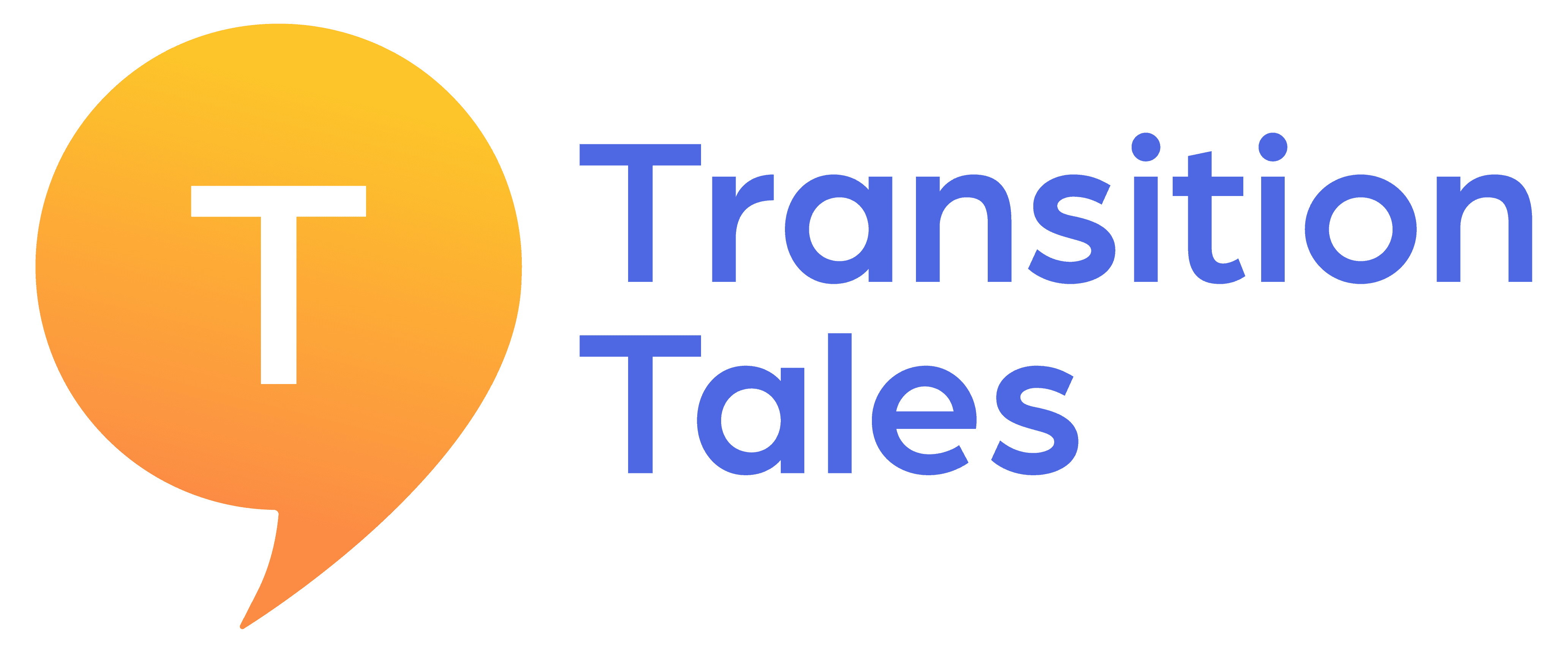Profile
How Allison Broke Into Tech from Parks & Recreation
About
Challenges
Resources

Allison Santos
Account Executive at Iorad
Transition Summary
Visitor Services Manager @ State of California Parks & Recreation
Sales Development Representative @ Iorad
Account Executive @ Iorad
What made you want to work in tech?
Before getting into tech, I worked in retail sales and then for the State of California in the Parks and Recreation department.
I loved that I worked outside in nature all the time when I was at California State Parks. However, there wasn’t a great growth trajectory for my particular role. I was also looking for a higher-paying job that could sustain me in Santa Cruz, a very high cost of living area. The organization I was at was also probably a decade or two behind in utilizing technology, and I was looking for more of a tech-forward atmosphere.
By that point, I had lived in Santa Cruz for about seven years and knew many people who worked in tech, and I had always wondered how I could get into the industry. I’d always been fascinated by software and thought it’d be amazing to contribute to the industry in some way. At first, I thought you had to know how to code to be in “tech”. I just wasn’t educated on the different types of roles and departments out there that make up a company.
How did you make that first transition into tech from Parks and Rec?
The year before I landed my first job in tech, I was a bit lost in what area I wanted to focus on. I tried out marketing because I thought it might be a good fit.
I started taking marketing certification courses online and did a couple of marketing internships with some small startups. Those internships were my first real foray into learning about the tech world. But when I was applying for marketing jobs, they were looking for experience, which I did not have.
At that point, I decided to look into Customer Success roles, since I have worked in the customer service industry for most of my jobs. That’s when I stumbled upon SV Academy. After speaking with their team, I learned that it might be easier to find a sales job than a CS role, since I didn’t have any experience. That’s when I decided to join the boot camp.
Before the program, I did a whole deep dive into the role and I messaged probably a hundred alumni from SV Academy just to see what their experience was like.
I had a lot of one to one coffee chats with SVA alumni just to get an idea of what their role was like, what they liked about it, what they didn't like about it.
And when I joined the bootcamp, I hustled very hard. I started applying for jobs right after I got permission to do that and I ended up finding the job even before graduation.
How did you land your first tech sales job after SV Academy?
I actually got my job because I connected with my manager from a sales community on Reddit. .
He had posted something about how to get a job as an SDR. And I just thought that it was a great article. I ended up finding him on LinkedIn just to thank him for the article and just to network with him. He mentioned that he was actually hiring for an SDR and asked me if I wanted to apply.
So I started as an SDR at a very small startup, and then I was doing that for about six months, and then I got promoted to an AE.
How did you get the promotion from SDR to AE in just 6 months?
I should preface this by saying our startup is very small. I am the only rep, so I wasn't in competition with other people to get promoted to this particular role.
But I definitely wanted to get into an AE closing role and I hustled very hard in the beginning. I treated the role like it was school – I did spend a lot of hours in my off time learning about the SDR role through podcasts and books like Question Based Selling, 30 minutes to President's Club, Subreddit Sales, Millennial sales, and Live Better, Sell Better. I was also networking with other sales folks. I was just getting inspiration from everywhere and trying to help myself get better at what I was doing. I can create a list for you and send it over because I don't remember the full list of resources I used.
Check out Allison’s full resource list under “resources”
My manager was very helpful because I was completely new to the industry and sales in general, so it was just a huge hurdle to get over that imposter syndrome of just “Oh my God I don't know what I'm doing.” He was very good about creating a structured program for me. On my one-on-ones with my manager every week, I would come in with a list of questions about my findings just from my homework, as I call it. And then we'd go over each one of them. He was very patient with me, thankfully.
On top of that during my first few months I also built up more training documents as I was learning, because I was the first and only rep so we were basically building this department from scratch – so helping just add to the modules, playbooks, and training content.
Ultimately, I hit quota the first quarter. I didn't hit it in the second quarter because this was like Q2 2022 when things were going downhill in the market but they still saw that I was very capable and very driven in what I was doing. Those first couple months as an SDR the company saw that I pushed very hard and did a lot of good work.
What made you want to become an AE?
During my time as an SDR I was shadowing my manager on his own demos and calls. And I saw what he did and how his whole style was. And I noticed that sales isn't really this pushy thing that we see stereotypically. I just saw what he was doing and I liked it a lot. I was like, okay, this is cool, it's more of a consultative selling role. And so that's why I pushed for that.
My manager is great – super empathetic, like the best manager I've ever had. He's very self aware and he knows what typical sales departments are like, and he didn't want to recreate the Wolf on Wall Street type of environment.
And I think it also goes from the top down, our CEO just didn't want that super corporate type vibe. He’s open and understanding with everyone.
Sign up for our newsletter
Discover inspiring stories, valuable resources, and advice to navigate your
career transition with people who are two steps ahead of you.
Networking was a huge part of your success. How do you approach it?
I guess before the boot camp, I did it a lot more just to get a better idea of the SV Academy program.
I would just essentially just message bootcamp alumni on Linkedin and say “oh, hey I'm interested in joining this program. I saw that you did the program and you're doing great at this role. I'm just curious if you know you're open to a chat to talk about your life, what you like about the job.”
And people were very open to it and happy to help. There are obviously some who didn't respond, but that's how it is.
And then when I was already in the role, I met people on places like meetups.com, a big networking site where people have meetups based on like types of hobbies, whether it be sports or like tech or chess or games. There is one local one called the Drink Beer and Talk Tech Group of Santa Cruz. So I ended up joining that and ended up becoming one of the organizers for it. And just to get more immersed into the mindset of tech because I live in Silicon Valley. So I'm meeting people from all different types of roles, all these big companies and that helped me get used to the lingo as well, because I didn't know coming from a parks and recreation background.
What were some of the biggest challenges for you?
Sales is hard, it's not an easy task and I just went 110 percent because the fear of failure really drove me. It started because I had really hardcore imposter syndrome. I just reminded myself: “I can't fail. This is what I want.”
With the AE role, I'm obviously talking to people now. I'm talking to CEOs, IT guys, directors. And I was extremely intimidated in the very beginning because I just didn't have the practice of talking to people in that space. So it took a lot of work for me to basically break down all of my manager's old videos, get the transcript, and write it out.
I was rehearsing like an actor, practicing like the actual pitch and just the flow of it. And that took a while for me to actually get down until I was super comfortable with it. But my manager knew I was coming from zero experience with that stuff so he was there to help me on the calls or support me while I got used to it. But I would say that was the biggest challenge once I switched over.
So I did my eight hour work day and then after that I put in another four to six hours learning so I felt like I didn't have a life at the beginning. I'm happy to say it's way more balanced now that I'm more comfortable in the role.
So looking back I would have done more self care. I would get a walking treadmill because I work from home things like that.
What’s next for you?
I honestly love my company. So I plan on staying here for as long as I can. We are building our partnership first type business, just because our tool specifically can be integrated into LMSs. We have 50 or so partners and so we're actually working with our partner reps to make sure they're able to speak to our tool and then help them sell as well. So my role has become half helping partner reps managing that, and then half as a full-cycle AE.
Transition Tales
